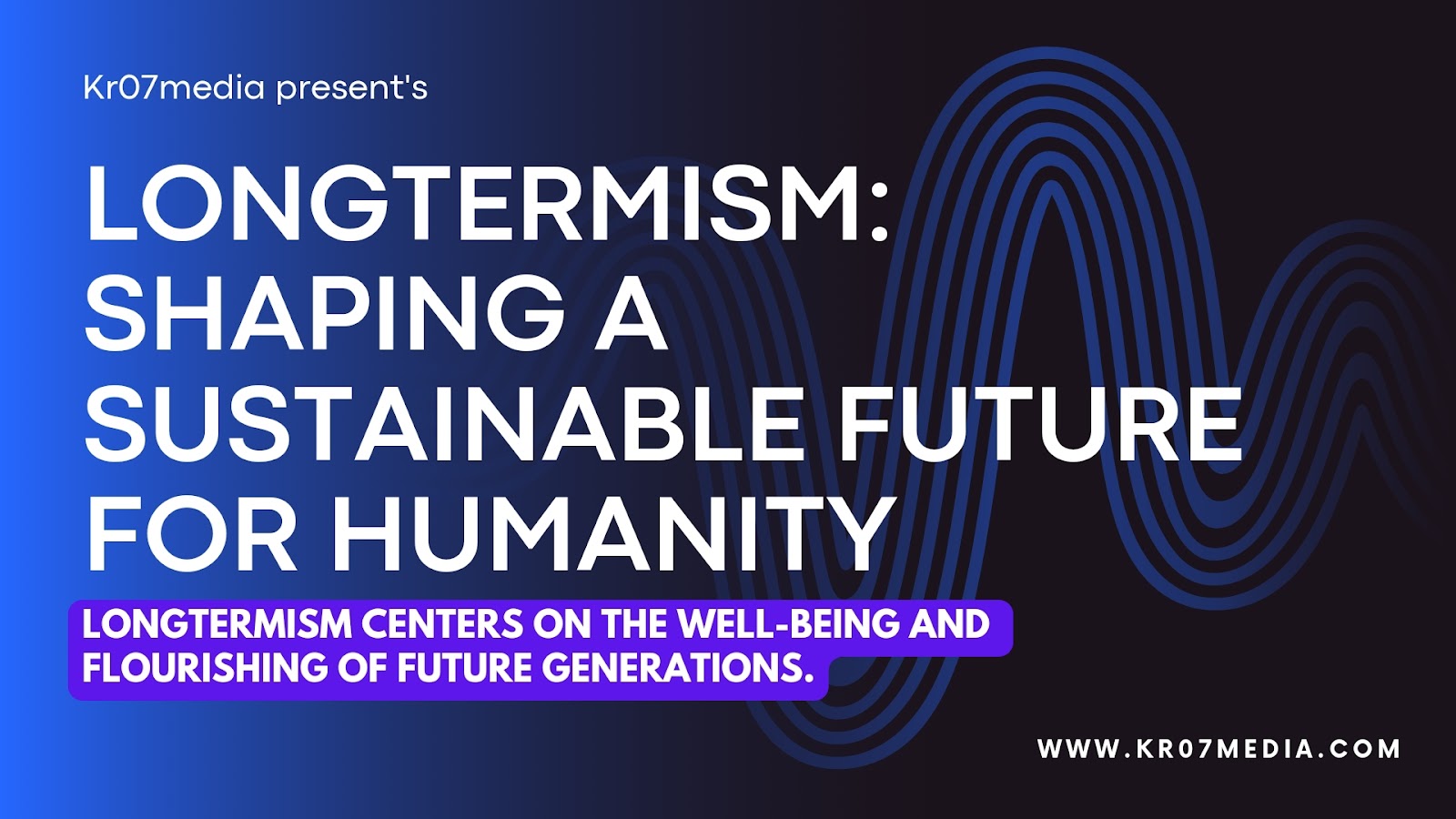Introduction
In an ever-changing world, the concept of longtermism has emerged as a compelling framework for addressing the global challenges we face today. Longtermism encourages us to adopt a perspective that extends beyond immediate concerns and seeks to maximize the well-being of future generations. It urges us to take proactive measures and make choices that will have a positive and lasting impact on the trajectory of human civilization. This article delves into the essence of longtermism, its key principles, and the potential it holds for shaping a sustainable future.
Understanding Longtermism
Longtermism can be understood as a moral and strategic framework that emphasizes the importance of considering the long-term consequences of our actions. It posits that we should prioritize efforts that have the greatest potential to improve the overall well-being of future generations. This implies looking beyond short-term gains or immediate crises and taking into account the long-term effects of our choices, policies, and investments.
The Central Principles of Longtermism
Future Focus:
Longtermism centers on the well-being and flourishing of future generations. It recognizes that the choices we make today will have far-reaching consequences for those who come after us.
Intrinsic Value:
Longtermism holds that all individuals, regardless of their temporal location, have intrinsic value. This means that the well-being of future generations is just as important as our own well-being.
Positive Trajectory:
Longtermism aims to steer human civilization onto a positive trajectory by actively working to address global challenges such as climate change, pandemics, existential risks, poverty, and inequality. It emphasizes proactive measures to prevent and mitigate future harm.
Utilitarian Approach:
Longtermism often adopts a utilitarian ethical framework, seeking to maximize overall well-being or reduce suffering. It acknowledges that resources and efforts should be directed towards interventions that yield the most significant positive impact for the future.
Implications and Applications
Existential Risk Mitigation:
Longtermism underscores the importance of identifying and addressing existential risks that could potentially threaten the survival or well-being of humanity. It emphasizes the need for robust strategies to prevent catastrophic events such as nuclear war, pandemics, or uncontrolled artificial intelligence.
Sustainable Development:
Longtermism aligns with the principles of sustainable development by promoting practices that balance economic growth, social progress, and environmental stewardship. It encourages us to take a holistic view of our actions and consider the long-term consequences of resource consumption and pollution.
Effective Altruism:
Longtermism has close ties to the effective altruism movement, which seeks to maximize the positive impact of charitable efforts. By applying a longtermist lens, effective altruists focus on interventions that address the root causes of societal challenges and have long-lasting benefits.
Technological Progress:
Longtermism recognizes the potential of technological advancements in shaping the future. It encourages investments in scientific research, innovation, and responsible development of emerging technologies to tackle global problems and enhance human well-being.
Conclusion
Longtermism offers a powerful framework for navigating the complex challenges of our time. By focusing on the long-term consequences of our actions, it prompts us to adopt a more responsible and forward-thinking approach to decision-making. Longtermism encourages us to direct our efforts and resources towards interventions that will have the greatest positive impact on future generations. By embracing this perspective, we can work towards building a sustainable and flourishing future for humanity, where the well-being of all individuals, both present and future, is given due consideration.
Longtermism is a concept that urges us to consider the far-reaching consequences of our actions and decisions, with a focus on ensuring the best possible outcomes for future generations. It prompts us to take a broad perspective, recognizing that the choices we make today can have significant implications for the trajectory of humanity and the well-being of future individuals.
Throughout history, humanity has often been driven by short-term thinking, prioritizing immediate gains without fully considering the long-term effects. However, longtermism challenges us to adopt a more farsighted approach, one that encompasses the potential consequences of our choices and seeks to optimize outcomes across vast stretches of time.
One of the key insights of longtermism is the acknowledgment of existential risks, which are threats that have the potential to permanently and severely harm or even extinguish human civilization. Examples of such risks include global pandemics, nuclear warfare, climate change, or artificial intelligence gone astray. By recognizing and actively working to mitigate these risks, longtermism encourages us to safeguard the future against catastrophic scenarios.
Furthermore, longtermism encourages us to consider the potential for positive impacts on future generations. By investing in areas such as scientific research, technology development, and effective altruism, we can aim to create lasting benefits for humanity as a whole. This mindset prompts us to prioritize projects and initiatives that have a long-term impact, even if the benefits may not be immediately evident.
However, it is important to note that longtermism does not imply neglecting or disregarding present concerns and the immediate needs of individuals. Rather, it encourages us to strike a balance between short-term considerations and long-term thinking. By taking into account the long-term consequences of our actions, we can make more informed decisions that benefit both current and future generations.
In conclusion, longtermism offers a powerful framework for addressing the challenges facing humanity and ensuring a flourishing future. It calls upon us to transcend short-sightedness and consider the far-reaching impacts of our choices. By embracing longtermism, we can strive for a world in which the well-being of future generations is prioritized and protected, ultimately leaving a positive and lasting legacy for the benefit of all humankind.



